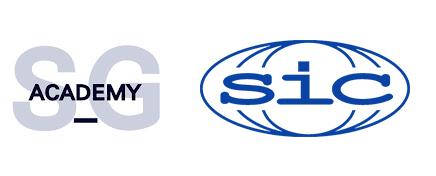Auditor of sectoral quality management systems of oil, petrochemical, and gas industry organizations (ISO 29001, ISO 19011, ISO 17021, Rules of SIC)
To enhance understanding, all course slides are voiced. Real-life cases will help participants better apply theory in practice. Structured information is divided into modules, making the learning process even more efficient.
Particular attention is paid to the specifics of the oil, petrochemical and gas industry. Participants will learn about the specific requirements and challenges associated with quality management in these industries, including managing supply chain risks, ensuring normative compliance and maintaining high safety standards.
This course is an essential step for those aspiring to become highly qualified auditors and make a significant contribution to enhancing their company’s quality management system.
Duration
36 hours
Language
English/Ukrainian
Format
100% online
Course objective
This course aims to ensure high product and service quality, reduce risks, and improve process efficiency under the specific conditions of the oil, petrochemical, and gas industries.
These industries have increased safety requirements due to potential risks associated with explosions, fires, and leaks. They involve complex technological processes that require rigorous quality control at every stage of production.
This course will help participants develop skills in risk identification and management, audit execution, and continuous improvement of quality management systems in the context of the oil, petrochemical, and gas industries.
Target audience
• External auditors
• Project managers and consultants who wish to master the quality management system audit process
• Members of the QMS implementation team at the enterprise
• Professionals who want to gain in-depth knowledge of QMS
• Specialists involved in daily support of QMS processes
• Students of specialized faculties
Document on completion
QMS external auditor certificate listed in the SIC international register
Thematic plan
The course program includes 2 modules:
1. Sectoral quality management systems (ISO 29001)
2. External audit (ISO 19011)
The program is designed for 36 hours, including time for studying theoretical material and passing tests.
Objectives
Auditor of the Sectoral Quality Management Systems of oil, petrochemical, and gas industry organizations (ISO 29001, ISO 19011)
|
hours |
||
|
І module Quality management systems ISO 29001 |
18 |
|
|
1 |
Introduction to the RTSMS |
3 |
|
2 |
Context of the organization as a fundamental basis of the RTSMS |
2 |
|
3 |
Leadership and Policy development in the sphere of road traffic safety |
2 |
|
4 |
Risk-based planning of the RTSMS |
2 |
|
5 |
Resources and documentation of the RTSMS |
2 |
|
6 |
Operational activities and emergency preparedness |
4 |
|
7 |
Accident investigation and analysis of the effectiveness of the RTSMS |
1 |
|
8 |
Corrective actions and improvements to the RTSMS |
1 |
|
|
Test |
1 |
|
ІІ module The procedure for conducting audits ISO 19011, ISO/IEC 17021, SIC Rules |
32 |
|
|
1 |
SIC — an international association of certification bodies |
1 |
|
2 |
Audit: objectives and criteria |
2 |
|
3 |
Classification of audits and related standards |
2 |
|
4 |
Terms and definitions |
1 |
|
5 |
Audit principles and their practical implementation |
4 |
|
6 |
Attestation procedure, requirements for auditors |
4 |
|
7 |
Pre-certification measures and sampling application |
4 |
|
8 |
Audit planning |
2 |
|
9 |
Primary certification: I and II stages of the audit |
2 |
|
10 |
Audit conducting |
2 |
|
11 |
Certification decision |
2 |
|
12 |
Support: supervisory and special audits, recertification |
1 |
|
13 |
Suspension, cancellation, reduction of certification scope |
1 |
|
14 |
Appeals and claims |
1 |
|
|
Test |
1 |
|
|
Case-reviews |
2 |
